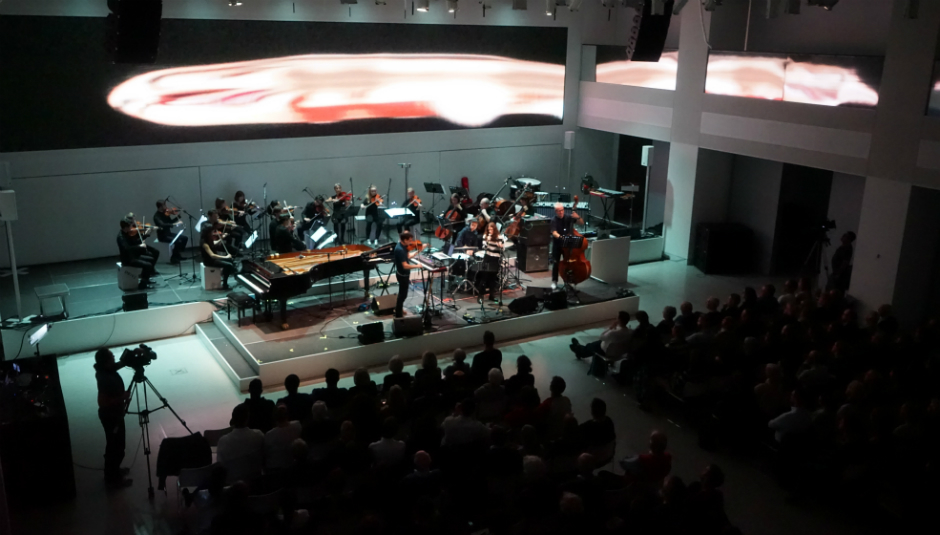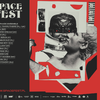This is not the first time I’ve been inside the inimitable DRIVE Volkswagen Group Forum, an exhibition centre in the heart of Berlin that’s part car showroom, part events space. It’s more or less as I remember it; spotless, gloss-white walls frame an architecture governed by precise geometry and a very clinical kind of cool. It so resembles the set of a BBC Four Nordic noir drama that if it transpired a politician or foreign dignitary were being callously murdered in a side room, I’d struggle to feign surprise.
For the last few years, this space has played host to regular label showcases from Neue Meister, the contemporary classical sub-label from esteemed imprint Berlin Classics. This ninth iteration gets underway with a performance from pianist-composer Clemens Christian Poetzsch. In many ways, his music is a microcosm of the label and the sound it represents. Subtle and refined, it’s one degree of separation from Richter, two from Glass, three from Satie; beautiful music, beautifully played. A shame, then, that the visuals – while certainly not lacking in production value – seem quite crudely deployed. Projected in widescreen onto the wall behind the stage, these stock woodland scenes seem little more than an empty proxy for meaning, subtracting rather than adding anything to the experience.
Poetszch is swiftly followed by a performance from virtuoso violinist Iskandar Widjaja. Tonight, he plays extracts from Bach’s St. Matthew’s Passion and a piece titled ‘Eneril,’ written in the vein of that same composer’s Erbarme Dich, and featuring a star turn from Mongolian vocalist Urna Chahar-Tugchi. All sublime, but it’s his performance of Max Richter deep cut ‘Mercy’ – a restrained piece from a composer who has made a career out of measured restraint – that proves one of the evening’s highlights. But again, while the sonics of the performance are enthralling, there’s something amiss about the optics. Here it’s Widjaja himself; while clearly a violinist of considerable skill and nuance, I can’t help but wonder if his dramatic, overly pained performance expressions are sometimes a distraction from his own talent.
After a brief interlude, it’s the turn of composer and violist John Metcalfe to take the stage. Prior to this evening, I was only ever really acquainted with Metcalfe’s 2015 Appearance Of Colour, released via Peter Gabriel’s Real World imprint. The majority of the music on that record would have been right at home this evening: intricate, instrumental, informed by Metcalfe’s training as a violist, but ultimately more expansive than his classical background. Instead, this is a set from the John Metcalfe Band, a four-piece comprised of drums, upright bass, Metcalfe on keys and viola, and vocalist Rosie Doonan. Drawing more heavily from the song-based material on this year’s Absence, the outfit have almost a trip-hop sensibility about them: cool, languid grooves that channel Dummy-era Portishead. It’s a sound which cuts through the sweetness of the neue classical either side, both contrasting and augmenting the plaintive beauty of that music in equal measure.
To round off the evening - with as close to a headliner as these Neue Meister events offer – German producer Robot Koch presents his new project alongside violinist Savannah Jo Lack. Like Poetzsch earlier in the evening, this is music entirely befitting its surroundings: sleek, cinematic soundscapes, equal parts organic and synthetic, with Lack’s fluid violin playing soaring over the top. It's a fitting end to the evening and contains everything that makes these Neue Meister showcases so successful: fundamentally indebted on the classical tradition, simultaneously unafraid to venture into neighbouring musical territories, and above all, characterized by quality and musicianship at every turn.






















